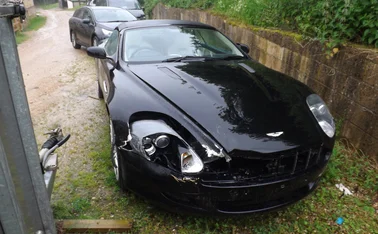
Post Europe – Aggregators: Passport to Europe

With the aggregator concept set to spread across the Channel, Jane Bernstein asks is Europe ready for it?
Price comparison sites in the UK have become household names, and the concept looks set to spread across Europe. Some industry experts believe France's aggregator market is particularly ripe for growth, and the Nordic regions could also be next in line for a price comparison boom with sites based in Sweden already enjoying some success.
Peter Ballard, a founding partner at Foolproof, observes that the ‘go' conditions for the aggregator model include a desire amongst consumers to shop around for the best price, as well as a culture of buying online and a certain level of commoditisation.
He goes on to explain, however, that while price sensitivity is an important trigger, quality and customer service also need to come into play. "People have much higher expectations now regarding how a site should work and what the buying experience should be. If aggregators invest in understanding those expectations and get that bit of the process right then they will keep a lot more of the traffic they attract."
In fact, there is much consensus that the customer experience has to be a priority for price comparison sites, wherever they are based geographically. As Matthew Donaldson, BGL Group's chief operating officer, asserts: "Fundamentally, you have to put the customer at the front of the business. Anybody who is not absolutely consumer focussed in this market will not succeed."
Mr Donaldson believes that the aggregator model can work across Europe but points out that its success depends on a number of dynamics, including the legislative environment, the region's infrastructure and the online buying culture. "The usability of the internet is of course important, including broadband penetration and the willingness of consumers to research and buy online," he explains.
"Claims would become more frequent, more expensive and potentially more complex."
Jeremy LeFebure, a senior executive in the UK insurance practice with Accenture, observes that the underlying customer proposition inherent in the aggregator offering is compelling and has a universal appeal. But he adds: “When expanding the model overseas, you can’t just plug and play, and the market conditions have to be right.” Mr LeFebure adds: “It is no accident that the it took off with such pace in the UK,” and goes on to highlight that for the UK, in addition to high internet penetration, there were also very established direct insurance markets, where customers were used to shopping around and buying direct from a supplier. There is some consensus that in European markets where agents are particularly prevalent, the aggregator model may not have the same immediate impact.
There are, however, signs that the price comparison concept is extending its reach across Europe – and France in particular is one to watch (see box). In November 2010, the BGL Group acquired French insurance price comparison company Courtanet. At the time, BGL Group chief executive Peter Winslow asserted: “We are confident that we will be entering the market during a period of rapid growth.”
Sabine VanderLinden, global head of value propositions – insurer division for SSP, points out that in France, many insurance buyers have established relationships with an agent or a bancassurer. She adds, though, “We can see an increased use of the online channel and the aggregator channel with younger generations, trying to manage their finances better and make savings.”
There is a view that there are growing opportunities for aggregators in the Nordic regions, and Sweden in particular. With some established and successful sites up and running, Sweden is something of an outlier, ahead of its Nordic neighbours. Jakob Tolleryd, CEO of price comparison site Compricer, agrees that Sweden is particularly developed in this respect. He adds, however, “Recently we have seen a growing interest for the comparison model from other Nordic countries, especially Denmark.”
Ms VanderLinden notes that there is an increasingly prominent use of the online channel in Nordic countries. “The demand and usage of comparison sites has and will continue to increase in the region as the Nordic market is one of the highest users of the internet channel in Europe and the buying patterns are adapted to the channel,” comments Ms VanderLinden.
"It is no accident the [the aggregator] market took off with such pace in the UK."
The success of the price comparison model in the Nordics is not, however, a foregone conclusion. Ms VanderLinden points in particular to the service-led culture in the region as far as insurance is concerned: “The market is very price sensitive like the UK, but brand trust and existing relationships with insurers play an important role in the policy selection process.”
Bent Dalager, head of the Nordic insurance practice with Accenture, agrees the Nordic area has potential. But he cautions that the levels of competition still haven’t been sufficient for the aggregators to be able to get agreements with the largest insurers which is vital. Mr Dalager predicts that increased competition and consumer demand will eventually make this happen.
One of the challenges for UK aggregators initially was that people tended to use the sites to research but not to buy. Swedish sites have also had to address this issue but aggregators are optimistic that buying habits are changing. Mr Tolleryd explains: “A majority of Swedish consumers are still only using comparison sites for information research, but we have seen an important shift in consumer behaviour over the last 12 months. We believe this trend will continue and that more and more consumers will buy their insurances online and through comparison sites.”
Some of the most successful marketing activities for UK aggregators have centred on high profile TV campaigns. And Swedish sites are also investing in TV advertising, as well as online campaigns and search engine optimisation.
It will certainly be important for aggregators to raise their profile. Mr Tolleryd comments: “Compared to the major insurance companies, comparison sites lack the same brand recognition and credibility. Even though Compricer is now known by 60% of the Swedish population, we need to become even better recognised and build a strong brand.”
|
How would you summarise the opportunities in the French price comparison market currently? We know it is a compelling consumer proposition in France and we know insurers are supportive - these are important signifiers and the market has huge potential to be every bit as big as the UK market in terms of aggregation. |
||||||
|
What would you identify as the major challenge for aggregators in the French market currently? |
||||||
|
|
||||||
Only users who have a paid subscription or are part of a corporate subscription are able to print or copy content.
To access these options, along with all other subscription benefits, please contact info@postonline.co.uk or view our subscription options here: http://subscriptions.postonline.co.uk/subscribe
You are currently unable to print this content. Please contact info@postonline.co.uk to find out more.
You are currently unable to copy this content. Please contact info@postonline.co.uk to find out more.
Copyright Infopro Digital Limited. All rights reserved.
As outlined in our terms and conditions, https://www.infopro-digital.com/terms-and-conditions/subscriptions/ (point 2.4), printing is limited to a single copy.
If you would like to purchase additional rights please email info@postonline.co.uk
Copyright Infopro Digital Limited. All rights reserved.
You may share this content using our article tools. As outlined in our terms and conditions, https://www.infopro-digital.com/terms-and-conditions/subscriptions/ (clause 2.4), an Authorised User may only make one copy of the materials for their own personal use. You must also comply with the restrictions in clause 2.5.
If you would like to purchase additional rights please email info@postonline.co.uk








